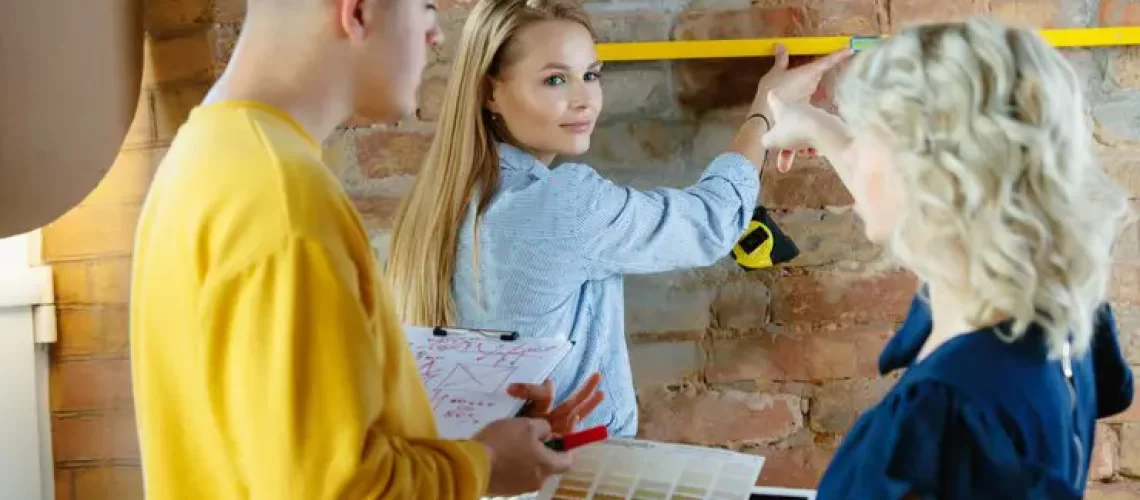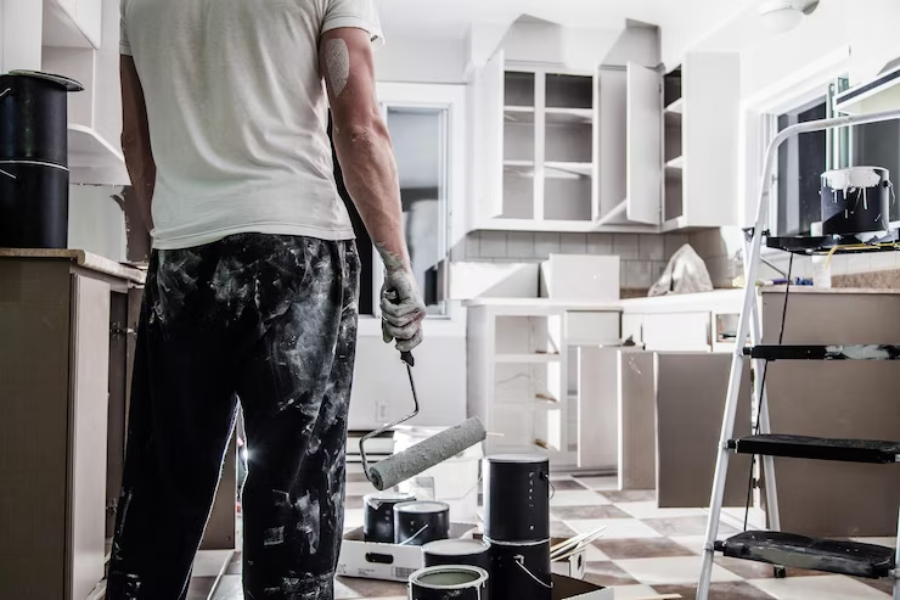Homeownership is a dream for many Australians, and with that dream comes the responsibility of maintaining and upgrading your property. Whether you want to create your dream home or maximize your investment, understanding the costs and benefits of renovation or rebuilding is crucial. We’ll explore these options in detail, considering budget, location, and long-term goals.
Is it Cheaper to Renovate or Rebuild in Australia?
Let’s address the burning question head-on. Is it cheaper to renovate or rebuild in Australia? The answer, as you might have guessed, isn’t a one-size-fits-all. It depends on various factors, but I can help you broaden your knowledge and perspective by looking at different considerations. Such as:
Budget Constraints
Renovation: When considering budget constraints, renovating your existing home is often the more budget-friendly option. Renovations typically require fewer resources upfront, making them accessible to homeowners with limited funds. You can make gradual improvements, addressing specific areas of concern without a massive financial outlay. This can be particularly appealing if you’re working with a tight budget.
Rebuild: On the other hand, building a new home usually involves a higher initial investment. The costs of new construction, such as purchasing land, architectural designs, and construction materials, can be substantial. However, it’s essential to note that while the upfront cost is higher, rebuilding can offer long-term cost savings in energy efficiency and maintenance. New homes are often designed with energy-efficient features that can result in lower utility bills and reduced maintenance expenses over time.

Age and Condition of the Property
Renovation: The age and condition of your property play a significant role in determining whether renovation is the right choice. Renovation can be cost-effective if your home is relatively new and structurally sound but has outdated features or aesthetics that no longer suit your taste. Renovations allow you to modernize and rejuvenate your living space without requiring extensive structural changes.
Rebuild: Conversely, older homes with significant structural issues may be better candidates for rebuilding. Renovating an older property with extensive structural problems can quickly increase in cost. In such cases, the foundation, wiring, plumbing, and other critical elements may need substantial repairs or upgrades, making renovation financially impractical. Rebuilding ensures a fresh start with a structurally sound foundation, minimizing the risk of hidden structural issues.
Location Matters
Renovation: Your emotional attachment to your current location, a well-established neighbourhood, or the desire to preserve the historical features of your existing property can all be compelling reasons to choose renovation. Renovating allows you to maintain the character and charm of your current home and neighbourhood. It’s an ideal option for those with strong sentimental ties to their surroundings.
Rebuild: If your current location isn’t ideal, and you’re open to a fresh start in a new area, rebuilding becomes an attractive option. You may seek a different neighbourhood, better schools, or a more convenient commute. Building a new home allows you to relocate and create your dream living space from scratch, tailored to your preferences and needs.
Long-Term Goals
Renovation: Renovating your home is an excellent choice if you wish to retain the character and history of your property. It’s an opportunity to honour the sentimental value of your existing home while making necessary improvements. Renovations are ideal for homeowners who have a deep emotional connection to their current residence and want to continue creating memories in that space.
Rebuild: Building a new home provides the utmost flexibility in design and modern amenities. If your long-term vision includes a cutting-edge, energy-efficient, and fully customized living space, then rebuilding is the path to realizing that vision. New construction allows you to incorporate the latest technologies and design trends, ensuring your home meets your evolving needs and preferences.
Now, let’s gain some perspective on the unique characteristics of the Australian housing market. Australia’s diverse geography and population present a varied housing landscape. From historic cottages to modern urban dwellings, the choices are abundant. This month we notice we’re starting to have a case related to this. High property prices, stringent building regulations, and the need for sustainability all play a pivotal role in shaping homeowners’ decisions.
Is it Cheaper to Renovate in Australia?
Renovating, the art of breathing new life into an existing structure, has been a popular choice for homeowners looking to upgrade their homes without starting from scratch. But is it cost-effective?
Yes, renovating can be more cost-effective in many cases. This is especially true when your home only needs cosmetics or minor structural adjustments. Renovations allow you to work with the existing framework, saving on the costs associated with complete demolition and new construction.
Factors Influencing Renovation Costs
- Scope of Renovation: The extent of your renovation project greatly impacts costs. A simple kitchen or bathroom upgrade will be more affordable than a full-house makeover.
- Age and Condition: Older homes may require more extensive work, increasing renovation expenses.
- Materials and Finishes: High-end materials and finishes will drive up costs, while more budget-friendly options can keep expenses in check.
Is it Cheaper to Rebuild in Australia?
On the other hand, rebuilding involves demolishing the existing structure and constructing a brand-new home. While it may seem more costly, it makes financial sense in some scenarios.
No, rebuilding can be cost-expensive, but it can be beneficial if your existing home is in poor condition or doesn’t meet your needs. It also provides an opportunity to build a more energy-efficient and modern home, which can lead to long-term savings.
Factors Influencing Rebuilding Costs
- Demolition Costs: The expense of tearing down the old structure must be factored into the budget.
- Design and Planning: Custom designs and intricate architectural features can increase construction costs.
- Location and Land Value: The cost of land and its location play a significant role in determining whether rebuilding is economical.
When is Renovation the Right Choice?
Deciding between renovation and rebuilding hinges on your specific circumstances and goals. Renovation is often the preferred option when:
You Love Your Location
If you adore your neighbourhood and the surrounding amenities, renovating allows you to stay in the same area without the upheaval of moving.
Budget Constraints
Renovations can be more budget-friendly when compared to the costs of buying a new property and construction from the ground up.
Historical or Sentimental Value
If your home holds sentimental or historical significance, preserving its character through renovation may be the best choice.
Minimal Structural Changes Needed
When the structural integrity of your home is sound, and you only need to make cosmetic changes, renovating is a practical choice.
Sustainability Goals
If you’re passionate about sustainability, renovating can involve eco-friendly and energy-efficient improvements.
When is Rebuilding the Right Choice?
Rebuilding may be the better option in certain scenarios:
Structural Issues
If your existing home has severe structural issues or doesn’t meet current building codes, starting a fresh rebuild ensures safety and compliance.
Customization
For homeowners with specific design preferences who want a completely customized home, rebuilding offers a blank canvas.
Long-term Savings
Investing in a new, energy-efficient home can lead to substantial long-term savings on utility bills and maintenance costs.
Land Value Dominance
In some areas with skyrocketing land values, tearing down and rebuilding a more valuable property may be more cost-effective.
In Australian real estate, renovating or rebuilding is not merely about finances. It’s a multifaceted choice influenced by location, budget, sustainability, and personal preferences. So, is it cheaper to renovate or rebuild in Australia? The answer lies in the unique circumstances of each homeowner. While renovation is often more cost-effective for minor improvements, rebuilding becomes viable when significant changes are needed, or the existing structure is no longer viable. Ultimately, the key is to align your decision with your goals, making your house a true reflection of your dreams and aspirations in the land Down Under.

